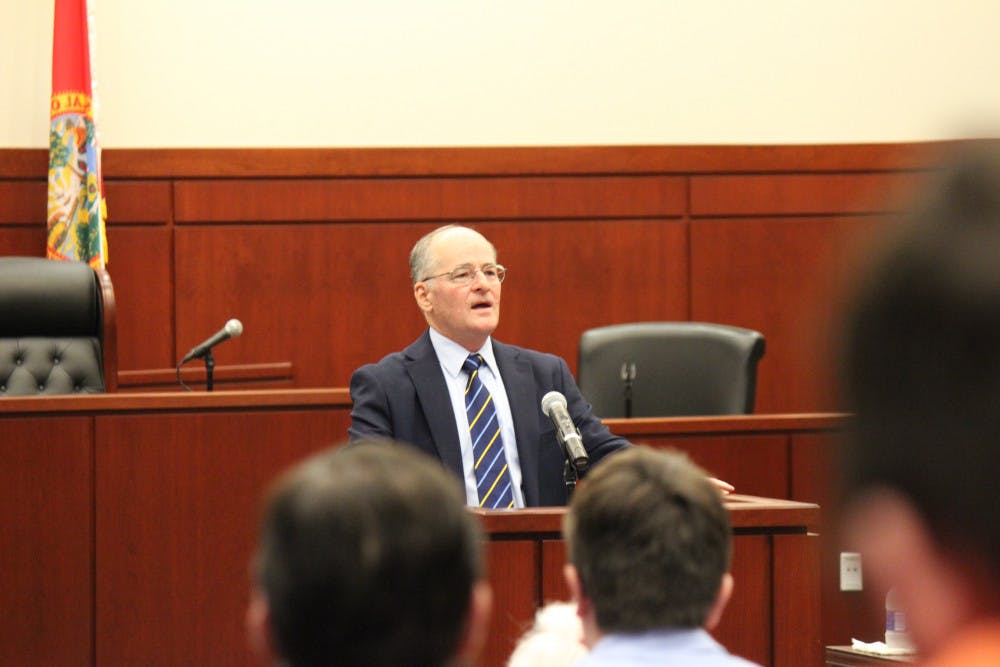Florida Supreme Court Justice Charles Canady spoke at UF’s Levin Law school today to discuss “The Role of Precedent and Stare Decisis.” This lecture, open to all UF Law students, was the final piece of the Overton Lectures series in honor of the late Justice Ben Overton, a former professor at UF Law. “The Overton lectures provide students the opportunity to learn about specific areas of Florida Constitutional Law from Justices of the Florida Supreme Court,” says Karen Miller, curator and counselor at UF Law’s Center for Career Development.
She continues, “Legal knowledge is important to everyone in our society. Many educational programs now offer courses to prepare students for work whether the students plan to become doctors, nurses, educational administrators, teachers, human resources executives, business people or to enter some other occupation. Even if one is not yet working or retired, legal knowledge is important to understand the rights of a consumer, student, parent, tenant, etc.”
To know the language of the law is a power citizens control. A Stare Decisis, according to Cornell University of Law, is “Latin for ‘to stand by things decided.’ Stare decisis is essentially the doctrine of precedent. Courts cite to stare decisis when an issue has been previously brought to the court and a ruling already issued.” During his presentation, Justice Canady discusses and explains of how a Stare Decisis can impact courts’ resolutions.
In the chain of things, decisions follow from Florida’s supreme court to the U.S. Supreme court. How and why courts come to conclusions derive from where evidence is seen to be supported through numbers and quoted reasoning. From the words of Justice Canady, “If you find something that you think is the right answer, you want to quote it.”






